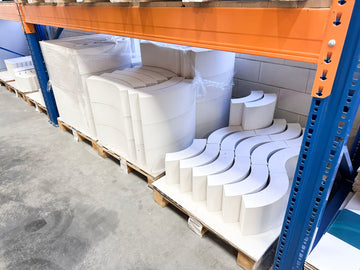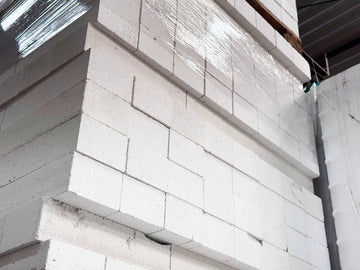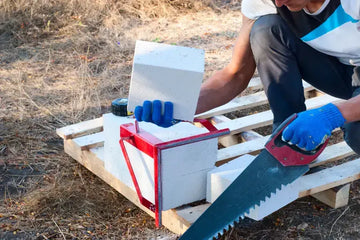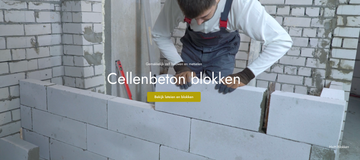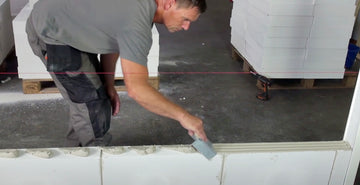
Aerated concrete, also known as aerated concrete or Ytong, is a popular building material due to its lightweight and insulating properties. It is commonly used for building interior walls and partitions in both residential and commercial buildings. However, a frequently asked question is: can you glue aerated concrete blocks with cement? In this article we will answer this question and discuss how to effectively glue aerated concrete blocks.
The importance of the right glue
Before getting into the use of cement to bond aerated concrete blocks, it is important to understand why the right adhesive is crucial. Aerated concrete has a porous structure, which means that traditional mortar or concrete does not adhere well. Using the wrong adhesive can result in weak joints and even structural problems.
Cement adhesive for aerated concrete blocks
Although traditional mortar is not suitable for gluing aerated concrete blocks, cement glue can be a good solution. Cement adhesive is specially designed to bond to porous materials such as aerated concrete. It contains additives that ensure better adhesion and durability of the adhesive connection.
To glue aerated concrete blocks with cement glue, follow the steps below:
- Make sure that the aerated concrete blocks are clean and dry. Remove any dust, dirt or loose particles from the surface.
- Prepare the cement adhesive mixture according to the instructions on the package. Use a bucket and a mixing stick for this.
- Apply a layer of cement adhesive to the ends of the aerated concrete blocks you want to connect. Make sure you apply enough glue to ensure a strong connection.
- Press the blocks firmly together and check that they are properly aligned. Any excess glue can be removed with a damp sponge or cloth.
- Let the glued aerated concrete blocks dry according to the instructions on the packaging of the cement adhesive mixture. This can vary depending on the brand and type of glue you use.
The use of cement adhesive has several advantages. It provides a strong and durable connection between aerated concrete blocks, resulting in a solid construction. In addition, cement adhesive is relatively easy to apply and dries quickly, reducing construction time.
Alternatives to cement glue
Although cement adhesive is an effective solution for bonding aerated concrete blocks, other alternatives are also available. A frequently used option is, for example, aerated concrete adhesive or Ytong adhesive mortar. These specific adhesives have been developed to adhere perfectly to aerated concrete blocks and ensure strong connections.
In addition, PU glue (polyurethane glue) can also be chosen as an alternative. PU glue has excellent adhesion properties on various materials, including aerated concrete blocks. It also offers good insulating properties and is suitable for both indoor and outdoor applications.
Conclusion
Gluing aerated concrete blocks with cement is possible, provided you use the right type of glue such as cement glue, aerated concrete glue or PU glue. These specific adhesives are designed to bond to porous materials such as aerated concrete and provide strong and durable bonds. Make sure you follow the instructions on the glue package and make the proper preparations before you start gluing. In this way you can use aerated concrete blocks effectively and safely for various construction projects.
